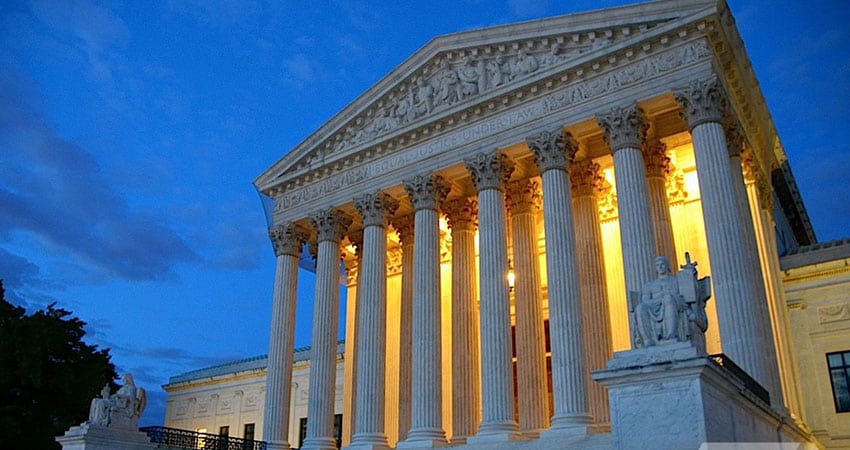In a landmark decision impacting the way domestic retail and ecommerce is transacted, the U.S. Supreme Court has overturned its 1992 Quill decision, meaning ecommerce companies must now collect sales tax regardless of whether they have a physical presence in a state.
The decision, not unexpected in light of retail’s upending since the 1990s, came in a 5-4 ruling that saw conservative and liberal justices joining forces. Ruling in favor were Justices Anthony Kennedy, Clarence Thomas, Ruth Bader Ginsburg, Samuel Alito and Neil Gorsuch.
Dissenting were Chief Justice John Roberts along with Associate Justices Stephen G. Breyer, Sonia Sotomayor and Elena Kagan.
Writing for the majority, Kennedy said Quill had caused states to lose between $8 billion and $33 billion in taxes annually and put businesses with a physical presence at a distinct disadvantage to “remote sellers.”
“In effect, Quill has come to serve as a judicially created tax shelter for businesses that decide to limit their physical presence and still sell their goods and services to a state’s consumers – something that has become easier and more prevalent as technology has advanced,” Kennedy wrote. “Worse still, the rule produces an incentive to avoid physical presence in multiple states. Distortions caused by the desire of businesses to avoid tax collection mean that the market may currently lack storefronts, distribution points, and employment centers that otherwise would be efficient or desirable.”
In the dissenting opinion, Chief Justice Roberts said smaller ecommerce sellers will struggle to comply with a tangle of state and local tax codes and requirements.
“The Court, for example, breezily disregards the costs that its decision will impose on retailers,” Roberts wrote. “Correctly calculating and remitting sales taxes on all ecommerce sales will likely prove baffling for many retailers. Over 10,000 jurisdictions levy sales taxes, each with ‘different tax rates, different rules governing tax-exempt goods and services, different product category definitions, and different standards for determining whether an out-of-state seller has a substantial presence’ in the jurisdiction (Sales Tax Report 3).”
Roberts then cited what he saw as inconsistencies in tax regulations, such as in New Jersey, where “knitters pay sales tax on yarn purchased for art projects, but not on yarn earmarked for sweaters,” and in Texas, where plain deodorant is taxed at 6.25% but there is no tax on deodorant with antiperspirant.
Setting up this ruling was a May 1, 2017 South Dakota “test case” law that required out-of-state merchants to pay a 4.5% tax on sales of over $100,000 worth of merchandise or 200 transactions in a year. South Dakota then sued Wayfair, Overstock and Newegg for non-payment of taxes. The case wound up last year before the South Dakota Supreme Court which refused to rule, sending it on to the U.S. Supreme Court. Oral arguments were heard in April.
Likely anticipating the inevitability of the ruling, Amazon in 2016 and 2017 radically shifted its approach, eventually charging sales tax in the 45 states plus the District of Columbia that collect it, even in jurisdictions where it didn’t have a physical presence.
You can read the entire Supreme Court decision here.
MCM Musings: Nothing will ever be the same in the world of retail and ecommerce. Companies with physical stores are cheering the South Dakota vs. Wayfair ruling, saying the playing field has finally been leveled between brick and click sellers on the issue of nexus. But Roberts’s dissent raises valid points about the complexity of sales tax across multiple jurisdictions, and the difficulty of compliance for smaller players. If nothing else, the ruling will be a boon for providers of sales tax compliance software! We’ll be watching and reporting on the massive ripple effect.

